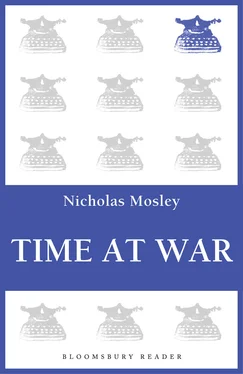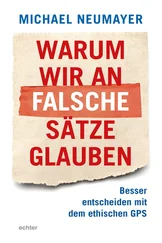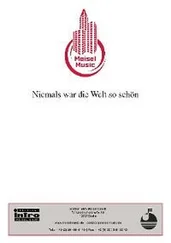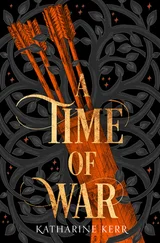Dear Nick, thank you very much for your letter. I had been looking forward to hearing from you which made it all the nicer. I am glad your arm is not too frightful. After you had gone I imagined that it was much worse than my first impression, and began to calculate how you would fare with one arm and, if it were your right arm (for I could not remember which it was), whether you would ever be able to shave with your left hand. Then I thought, well, he does some things with his left arm so maybe it will not be so bad. Really, though, do let me know that it will be quite workable again. Was it very painful? Do not say that your agony was acute and intense for I shall not believe you, but I am sure it must have been trying because it probably throbbed and kept you awake for days.
I do not know whether you thought me rather intense in not telling you to go back right away as I should have done. But really it was that I relied on you to such an extent that morning when we had so few fellows who I knew would ‘go’. The show went extremely well. Jock and Desmond Fay both did very well. We lost Mayo, Henshaw, O’Reilly, Keegan and Cpl Williams. All these were killed during or soon after attack. As usual one didn’t think a great deal about it at the time, but later the realisation begins to appal one. Michael Clarke was killed, Geoff Searles wounded rather badly in the arm, John Culverhouse and Terry O’Connor were also wounded but not too badly. Lovatt was slightly wounded. Sorry to give you all this rather depressing news but I thought you would like to know and may not have heard. And anyway that is what has happened.
You say you will be back soon. Do come as soon as possible, for really it is not so bad, and now I have no one with whom to carry on abstruse discussions on Morality and the Cosmos. So you see your presence is necessary. I will end up now in case I become too tedious. Really I feel I could write for ages because I can write to you in a manner that is impossible in writing to folks in England. Do write again. If I am your way I will surely find out your luxurious quarters. Well there you are. Yours, Mervyn.
I grieved especially for Mayo, who was a good and beautiful man. Close comrades inscribed on the cross of his hastily dug grave ‘The finest sergeant there ever was’.
When I was in hospital I began writing a poem about the battle of the Liri valley, which for some time I was quite pleased with. But reading it now I wonder if it gives as true an impression of the battle as perhaps the laconic letter from Mervyn does. What is it about poetry: it prettifies tragedy? Makes palatable that which should be objected to and changed? Perhaps some prettification is necessary for humans to bear their predicament. Such questions have become my hobby-horses in later years. But then I have never considered myself a poet. However, this is one of the only two or three decent poems I ever wrote, so I reproduce it here because, all right, poetry is an effort to make something sacramental out of the obscenity of war. And one should try to see what does or does not work.
LACRIMA LIRI
The cornfields wave toward the sky
And from above the clouds reply
With smiles of gentle sleepiness.
Below, the summer sun’s caress
Lies softly on the silent plains
And deep within the sunken lanes
The trailing thorns hang down to dream
And slowly in the silver stream
The leaves of weary willows drift
And sway to lazy winds that lift
The heavy heads of drooping trees
With tenderness of silken breeze.
But Stranger, Stranger, don’t you see
Behind each crimson-tinted tree
Within those hollow, haunted walls
And torn upon each thorn that falls
So gently, gently, groping down;
Beside the silent fields that crown
The sleepy summer’s brittle glare
With ripples in the sun-swept air …
Stranger, don’t you see that there
The devil’s terror-laden breath
Suffuses all with taint of death?
That here one summer long ago
The silent lanes did slowly flow
With drops of dying hearts that bled
And drained the dying to the dead?
That here vain tears of frozen grief
Once trembled on each withered leaf
And hung from every tearing thorn;
And out amongst the golden corn
Blind eyes did strain in vain to see
The light that mocked their agony.
Well, does that work?
Does battle work?
I was in the hospital near Naples for two weeks. Then I got ten days’ convalescent leave. The world that I was finding myself in seemed to veer between the extremes of hell and heaven; to be demonstrating, if one was to understand it, the need to comprehend both possibilities.
I wrote to my father –
My wanderings have taken me into what I think is the most beautiful place I have ever seen. You remember Ischia? — the lovely island opposite Capri which we visited in the Vivien and where the peasants welcomed us on the beach with smiles and bottles of sweet white wine. How I got here I hardly know. Sufficient to say that my way from the hospital back to the battalion seemed about to become so tedious that faced with a delay of ten days at a dreary reinforcement centre, I stormed up to the CO and demanded leave. He complied with surprising readiness, only stipulating that I would have to find my own accommodation. From then on fate took charge. I arrived here yesterday evening from the preposterous barrel of a steamer … I was met by a smiling old man who took me to a clean white room with a balcony that looked out over the sea … the dinner that I ate that night was such as I have not dreamed of for years except in the noble precincts of Holloway. Today I strode over the high hills that run along the centre of this island: at Forio a crowd of children and old men gathered round me at the café begging for cigarettes and hoping to humour me by saying how wonderful the English were and how they hated Mussolini. I told them I was a fanatical admirer of Mussolini, and a hundred per cent fascist, at which they stopped plaguing me for money. One little boy broke into the lusty strains of Giovanezza until he was hustled away by a policeman.
What I did not tell my father was that another small boy, about ten years old, had followed me round much of the island offering, with graphic gestures, to masturbate me — and looking surprised and hurt when I declined. In the Naples area in 1944 this was probably a profitable business; Allied soldiers were lectured regularly on the near certainty of getting venereal disease if they went with Naples prostitutes. I had given a lecture myself on the subject to my platoon, embellished with lurid illustrations of resulting physical deformities.
Back in Naples I met up with some old Rifle Brigade friends in the Officers’ Club on the beautiful hill overlooking the bay. Together we enjoyed — I rhapsodised in a letter to my sister — ‘exotic bathing parties in the gardens of the Winter Palace of the kings of Naples at Caserta; parties in limpid rock-bound pools surrounded by classical statues and pink champagne. We went sailing from the harbour at Posillipo; each night there was the Opera.’
It would have been impossible for me to exaggerate the joys of opera in the magnificent Naples Opera House which had reopened almost as soon as the Allies had taken over in 1943 and, so far as I know, continued in operation for the rest of the war. Anyone in uniform could get in cheaply — into the royal box if there were no other seats — and once I remember even lingering for a time in the orchestra pit. Singers were in the full-blooded Neapolitan tradition, ready to give an immediate encore of an aria if the audience demanded it. This style was a revelation; I still sometimes miss it at Covent Garden. Then from Naples I went to see the Greek Temples at Paestum. I wrote to my father –
Читать дальше












